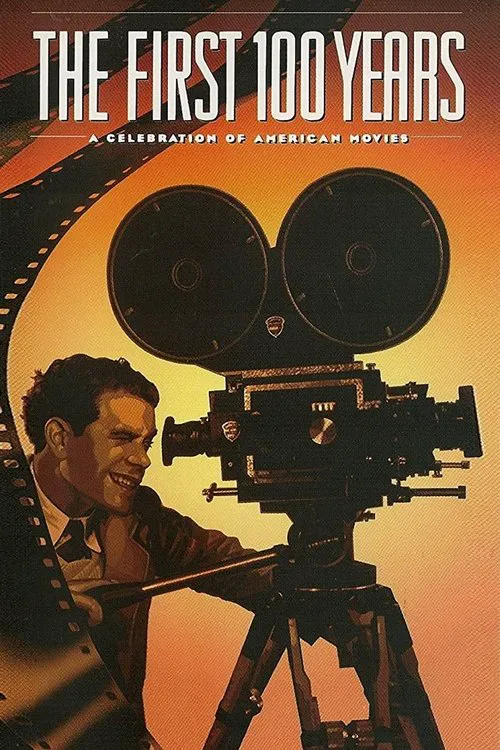The First 100 Years: A Celebration of American Movies

Plot
The First 100 Years: A Celebration of American Movies is a documentary film that commemorates the centenary of Hollywood's emergence as the world's largest exporter of films. This cinematic tribute is woven together through a patchwork of interviews with actors, writers, and industry professionals who have shaped the industry over the past century. As these stories unfold, they are interwoven with iconic scenes from some of Hollywood's most beloved movies, creating a rich tapestry that pays homage to the art and culture of American cinema. The film begins by setting the stage for the early days of Hollywood, a fledgling industry in the early 20th century. The first wave of pioneers, including entrepreneurs, producers, and directors, were instrumental in shaping the foundations of the studio system. These pioneers worked tirelessly to bring the magic of movie magic to life, crafting innovative storytelling and cinematic techniques that captured the imagination of audiences worldwide. As the industry grew, so too did its influence. The Roaring Twenties saw the rise of the talkies, with films like "The Jazz Singer" (1927) and "The Singing Fool" (1928) signaling a new era in motion picture history. Interviews with veterans of the industry offer a glimpse into the excitement and uncertainty of this period, as the art of filmmaking continued to evolve in response to technological advancements and shifting public tastes. The Golden Age of Hollywood, a period spanning the 1930s to the 1960s, is remembered fondly by its participants. This era produced some of cinema's most enduring classics, from "Casablanca" (1942) and "Citizen Kane" (1941) to "Rear Window" (1954) and "Singin' in the Rain" (1952). Through their recollections, actors like Gregory Peck and Gene Kelly share behind-the-scenes anecdotes about the stars and legends of this bygone era. One of the most fascinating aspects of The First 100 Years is its exploration of the impact of technological innovations on the filmmaking process. From the advent of sound, color, and widescreen formats to the emergence of television and home video, the documentary shows how Hollywood adapted to each new development, often pushing the boundaries of what was thought possible in the process. The New Hollywood movement of the 1960s and 1970s saw a seismic shift in the industry. Filmmakers like Martin Scorsese, Francis Ford Coppola, and Steven Spielberg emerged with their own unique visions and styles, challenging the conventions of traditional studio filmmaking. Interviews with these directors showcase their struggles to bring their creative visions to life, often in the face of studio interference and commercial pressures. The First 100 Years also touches on the impact of the film industry on popular culture. From movie musicals to science fiction epics, Hollywood's output has consistently reflected the anxieties and aspirations of the American people. In this respect, the documentary serves as a powerful reflection of the nation's psyche over the past century. As the film nears its conclusion, its attention turns to the modern-day filmmaking landscape. Interviews with contemporary industry professionals provide a glimpse into the challenges and opportunities of the digital age, from the rise of streaming platforms to the ongoing struggles for diversity and representation in Hollywood. Ultimately, The First 100 Years is a loving tribute to the art of cinema and the people who have brought it to life over the past century. Through its interweaving of historical and personal narratives, it creates a rich portrait of Hollywood's evolution, from its humble beginnings to its current status as a global cultural powerhouse. As a celebration of American movies, this documentary is a must-see for film enthusiasts, historians, and anyone curious about the stories behind the silver screen.
Reviews
Recommendations


